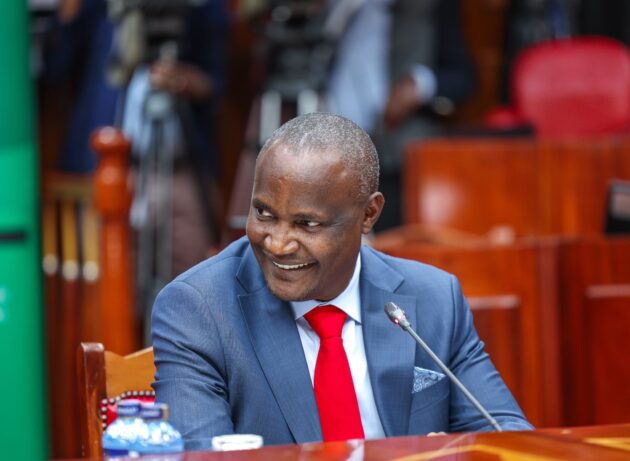
Plans to reduce PAYEE shelved after KRA fails to meet target » Capital News
NAIROBI, Kenya, Jun 4 – Treasury Cabinet Secretary John Mbadi says the government shelved plans to reduce the Pay As You Earn tax after KRA failed to meet its revenue collection targets.
Speaking before the during a Senate plenary session, Mbadi said the government had conducted simulations on how to lower the PAYE burden to boost Kenyans’ disposable income.
However, he stated that the failure by KRA to meet its revenue goals forced Treasury to hold off.
“We did some simulations on how to reduce the Pay As You Earn (PAYE),” Mbadi told Senators.
“What stopped us from implementing it in this finance bill was the failure by KRA to meet its revenue targets.”
KRA had revised its revenue collection target to Sh2.537 trillion for the financial year ending June 30, 2024, down from the original projection of Sh2.787 trillion.
By the close of the fiscal year, the authority had collected Sh2.407 trillion, falling short by Sh130 billion.
This represents a 95.5% achievement of the revised target.
Despite the shortfall, the collection still reflected an 11.1% increase from the previous financial year’s total of Sh2.166 trillion.
The Treasury attributed the revenue underperformance to several macroeconomic challenges, including the weakening of the Kenyan shilling against the U.S. dollar, surging bank lending rates, and disruptions in global supply chains caused by ongoing international conflicts.
Mbadi expressed optimism that ongoing reforms at the Kenya Revenue Authority, particularly in automation and systems modernization, will eventually create room for PAYE reductions in the future.
The proposed tax cut would have provided relief to salaried Kenyans, many of whom are grappling with rising costs of living amid a tough economic climate.
For now, however, the government appears focused on strengthening revenue collection mechanisms before making adjustments to personal income tax.
He assured that the relief will be incorporated in the next finance bill.